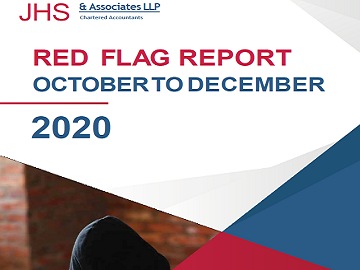Reference: Securities & Exchange Board of India
Update:
Sebi\’s guidelines for listed REIT, InvIT on rights issue:
Sebi has allowed listed REIT and InvIT to make a rights issue of units. This is subject to several conditions including these investment vehicles obtaining in-principle approval of the stock exchanges for listing of units proposed to be issued, besides none of the respective promoters or partners or directors of the sponsor or manager or trustee of the REIT and InvIT is a fugitive economic offender and should not be barred from the securities market.
The issuer will have to disclose objects of the issue, related-party transactions, valuation, financial details, review of credit rating and grievance redressal mechanism in the placement document.
The investment manager on behalf of the InvIT, in consultation with the lead merchant banker(s), shall decide the issue price before determining the record date
The investment manager, on behalf of the InvIT,shall announce the record date to stock exchange(s) at least three working days (excluding the date of intimation and the record date) prior to the record date. The InvIT shall not withdraw its rights issue after announcement of the record date
The minimum subscription to be received in the rights issue shall be 90 per cent of the issue size through the letter of offer.
The InvIT and REIT shall not make any further issue of units in any manner whether by way of public issue, rights issue, preferential issue, qualified institutions placement, institutional placement, issue of bonus shares or otherwise during the period between the date of filing the draft letter of offer with the board and the listing of the units offered through the letter of offer or refund of application monies.
Reference: Central Board of Direct Taxes
Update:
Income- Tax Deduction from Salaries under Section 192 of Income Tax Act, 1961:
The CBDT has issued annual circular, detailing therein the provision of deduction of Tax at source on salary income. This Circular contains various situations and circumstances that can be envisaged and specify the official position on deduction of tax at source. This Circular may come out handy at any point of time and is attached herewith.
Reference: Institute of Chartered Accountants of India
Update:
Exposure Draft on Standard on Internal Audit (SIA) 130 Risk Management:
The Internal Audit Standards Board of the Institute of Chartered Accountants of India (ICAI) has issued Exposure Draft on Standard on Internal Audit (SIA) 130 Risk Management. This Standard on Internal Audit (SIA) 130 seeks to revise and supersede SIA 13 “Enterprise Risk Management”, issued in February 2009 (in recommendatory form by the Board).
Implications:
Comments on the exposure draft can be sent till 05 February 2020.
Reference: Insolvency and Bankruptcy Board of India
Update:
IBBI amends the Insolvency and Bankruptcy Board of India (Voluntary Liquidation Process) Regulations, 2017:
The Insolvency and Bankruptcy Board of India (IBBI) has notified the Insolvency and Bankruptcy Board of India (Voluntary Liquidation Process) (Amendment) Regulations, 2020 on 15th January. 2020.
The aforesaid amendment provides that a Liquidator shall deposit the amount of unclaimed dividends, if any, and undistributed proceeds, if any, in a liquidation process along with any income earned thereon into the Corporate Voluntary Liquidation Account before submission of an application for dissolution of the corporate person. It also provides a process for a stakeholder to seek withdrawal from the Corporate Voluntary Liquidation Account.
Implication:
The amended regulations are effective from 16th January 2020.
Reference: Central Board of Indirect Taxes & Customs
Update:
ALV computed on basis of valuation report of Municipal Authorities couldn’t be rejected without valid reason:
Sanjay Brahmdev Kapoor v. ACIT – [2020] 113 taxmann.com 320 (Mumbai – Trib.)
The assessee filed his return of income declaring income under the head ‘Income from other sources’. The Assessing Officer (AO) called upon the assessee to furnish the details of the property let out and rent received. The assessee submitted that he along with his father and brother was a co–owner of a flat. Such flat was given on rent to a partnership firm wherein his father was a partner. The assessee submitted that the ALV determined by the Municipal Authority could be adopted for determining the income. However, AO rejected the assessee’s submissions. CIT(A) upheld the order of AO.
On further appeal, ITAT held that the neither the AO nor CIT(A) had made any enquiry with the Municipal Authorities or any other Government agencies to find out the market rent of such property. Without making any such enquiry, the valuation of Municipal Authorities furnished by the assessee couldn’t have been rejected, that too, without considering assessee\’s claim that the comparable cases referred to by the AO were not at all comparable since they were commercial properties.












